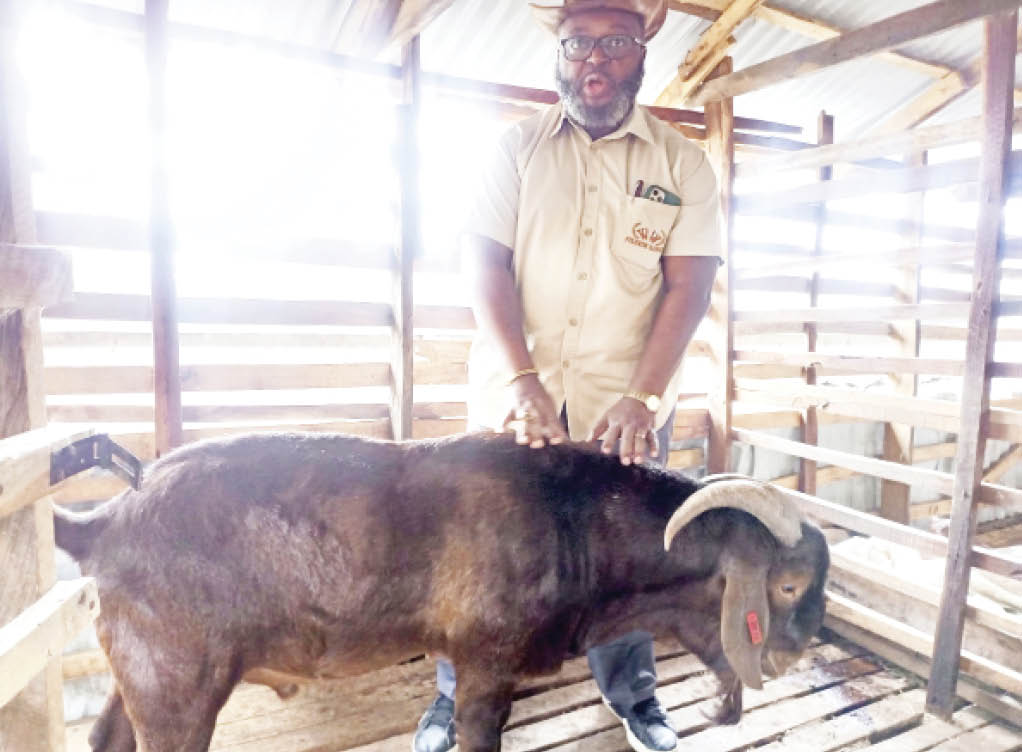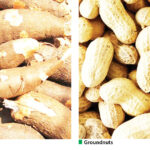Despite losing N200million in a ranch he set up in Abia State to poisoning and rustling some years ago, Dr John Abraham Godson was determined to change the narrative of livestock production in Nigeria.
In an interview with Daily Trust on Sunday in his Pilgrim Ranch model facility in Abuja, he said that before those investments he had lived in Poland for 25 years, and that he was the first black senator ever elected in Poland; and after his two tenures he came back home.
AGRO SOLUTIONS: We need to adopt more orphan crops
We’re losing millions weekly – Nguru cattle dealers
While in Poland, he associated with a lot of farmers, and in fact, the party in which platform he won election was an agricultural farmers’ party. His years in Poland brought him to a lot of farmers, where he saw and learnt how they practised their agriculture.
But his journey into agriculture did not start from there as he comes from an agricultural family. His father studied agriculture at the University of Nigeria, Nsukka. He also read agriculture in his first degree. After graduation, he worked in the International Institute of Tropical Agriculture (IITA), Ibadan as a research supervisor before travelling out of Nigeria.
With what he saw in Poland he came to the “conclusion that what we are doing is not agriculture. What we are doing here is archaic, labour intensive and not productive. For example, our cattle here would give you maybe 1.5 litre of milk daily while cattle in Poland will give you 25 litres.”
How his goat farming idea came
“When I thought about what to do in Nigeria, agriculture was number one and the number two, why goat? I know that in the North people prefer ram or sheep and so on, but in the South we prefer goats. It is the main thing. Most of the goats we eat there are brought from the North to the South, and most of them were doing goats in a subsistence level, just as they allow them to roam around. So, my question was: Why don’t we do this commercially? I have been to South Africa, America and saw how farms do this. Specifically, the ones in the North are not doing it commercially in a modern way. That was how the idea came.
To achieve his aim, Dr Godson first of all travelled to South Africa, underwent a training on goats rearing with Boar and Calahari red, then decided to set up his farm. And as he was going on, it turned out that many prospective farmers were interested in the exotic breed of goats he had, and that pushed him into starting a modern commercial goat training three years ago.
The breeds in the farm
“Our main breeds here are Boar and Calahari. These are meat breeds. We have four kinds of breeds: meat breed, dairy breeds, we have breed that are for skin and fiber and breed that are for pets.
“In Nigeria, we are not really into dairy when it comes to goats. Not many people even believe it is the best or better than cow milk.
It is the meat that we are more interested in, that’s why we focus on these two breeds. There’s another third breed we are about to bring in, that is the savannah white. These are all meat breeds that are very huge. And because they are exorbitant, the prices are expensive, especially good quality breeding stock. So we have to try and cross-breed with the local ones so that it would be more affordable for local farmers,” he said.
Why we sell pregnant goats
He said the rationale for selling pregnant goats was the demand, which he said was high, adding, “We don’t want to wait until they deliver. What we do is to procure local goats and cross them with the foreign breeds we have the stocks. As soon as we can confirm that they are pregnant, those who ordered them will pick them up and take care of them. Secondly, it is because we don’t have a large facility here.
“If we had a large facility, like I had a ranch in Abia State where we have 608 hectares – in such a place, you can allow them to deliver, then sell the crossed breeds. But here, we don’t have that; and we have to close the facility in that location due to insecurity.
“We are trying to get a place in Kuje. If our goats give birth to 100 kids all of a sudden, we don’t have a place to take care of them. So we prefer to procure, treat, stabilise and get them pregnant. And as soon as we can confirm that they are pregnant, we sell them.
Starting a goat farm
He advised every starter who doesn’t have a lot of money to start with the local goat, depending on any of the three husbandry systems.
“We have the intensive, which we are doing with the imported goats. We have the semi-intensive, which we will be doing with the local goat, then we have the extensive, which you see people doing.
“The extensive is the cheapest because the goats almost fend for themselves. But we don’t encourage extensive system because there are many things you cannot control, such as what they eat. So we recommend at least semi-intensive,” he said.
Cost and profitability
In terms of cost, if a farmer wants to do semi intensive, he/she needs to carter for their housing. A housing that carters for 100 goats will cost the farmer about N1million, but prices of materials continue to change these days. A farmer can either use wood or iron, which lasts longer.
“The most important thing is that the floor should be off the ground, and there should be about one centimeter gap between the 2×4 wood. It makes it easy to clean. It also helps to avoid the buildup of pathogens and ectoparasites. That’s why it is like that. If you go there now you would see that it is very easy when you go under. If you look under, that’s where you see the droppings. That makes them healthy and there are no issues with ticks, fleas or lice etc.
“If you are procuring goats from us, the cost for West African dwarf is between N40,000 and 45,000. The reason is that it is cheaper to go to a village market and procure them at N15,000, N10,000 and N20,000, but many people who have done that have experienced that those goats suffer mortality.
“But as experts, what we do is to procure those goats and stabilise them. We increase the immunity through a series of treatments we give them, then we vaccinate them against PPR and tag them.
“There are five conditions for assessing goats: one is very thin bony and so on. The condition number five is very fat. So, make sure they reach condition score number three, which is robust, good; and they are fine. Then at the stage, that’s when we can sell them as a breeding stock to other farmers. So you should be looking at N40,000, N50,000 or N55,000, depending on the breed,” he said.
Cost of the exotic breed
The exotic breed costs more, depending on the class of goats. There are four classes of goats. The first class is the pedigree full blood (stud) goats. These are the most expensive. They come with a pedigree certificate. Some have been seen sold in auctions for more than $53,000 (about N30 million).
“In our own stock, such goats go for between N2m and N3m. The second classes of goats are full-blood commercial. Commercial class goats go for maybe one N1.8m to N2.4m, depending on their quality. The purebred Boer goats and field goats will go from N600,000 and N700,000 to even up to N1.5m.
“Field goats are those you don’t know their history and their genetic record. They may be purebred or they may have been crossed with other goats and so on. The final class are meat goats, which are the last class, usually culled from the stock due to age (too old to breed), defects and illness.
“For a farmer who wants to set up a good farm, I recommend classes 1 and 2 because the genetic quality of your goats – your breeder stock – will determine the quality of your entire flock. So, if you have a poor quality breeder stock, the rest of your flock will be very poor,” he said.
I will not sell “King George” at N10m
In the farm, he has a huge male goat named ‘King George,’ with which he crosses with other breeds.
“If you give me N10m I won’t sell ‘King George’ because he’s a top quality stud. Look at the kids: males weigh 4.8kg and the female 3.6 kg at birth. When they come from good quality breeder stock, they grow faster. You may see others who have boar but they are not as big as this because they maybe a mix of field goats, so they are low quality.
The offspring of King George sell between N1.7m and 2.4m at three months of weaning.
Advice to farmers
He advised farmers to start small and learn, saying there is wisdom in starting small as it is low in cost. The number two is that you can make your mistakes on a small scale. You can start with 10 local goats and one male (he-goat), then learn and use opportunities.

 Join Daily Trust WhatsApp Community For Quick Access To News and Happenings Around You.
Join Daily Trust WhatsApp Community For Quick Access To News and Happenings Around You.


